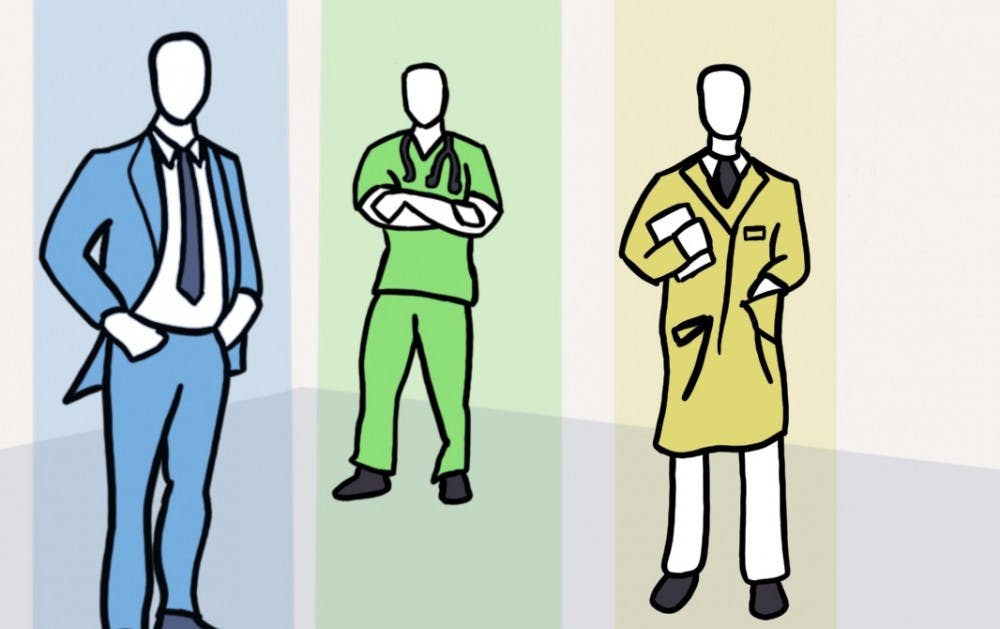Many students each year come to ASU hungry for a degree and thirsty for cash. But these two are often not satisfied together, and they are certainly not satisfied immediately.
Students may find themselves at a crossroads as they weigh the pros and cons of finding a temporary job in food service or retail, which is a surefire way to get paid, or finding a position which will benefit their career long term.
It is ultimately most beneficial to always consider how a current decision will affect the future. This is true when deciding to take on a job as well as when deciding when to quit. Finding a more career-relevant job will add significant weight to these decisions, making it more beneficial to take on and more potentially detrimental to leave.
Mary Dawes, the director of ASU’s Major and Career Exploration program, said career-relevant jobs give students an advantage when they apply for post-graduation positions.
“Certainly getting work experience is a great thing,” Dawes said. “Any kind of work experience gives you some kind of discipline and work ethic, and whatever the job is, you’re learning something … But if you can get work experience related to what you’d like to do when you’re done with school, how much better would that be?”
ASU offers multiple students jobs, including monitoring the Walk-Only Zones during the weekdays or driving the DART carts around campus. Additionally, there are employment opportunities with Starbucks.
While they are a good way to build managerial skills and to make money while supporting the student community as a whole, they do not necessarily help students find jobs in their careers.
“Those jobs are fine first jobs, just to get work experience — what it’s like to have a boss, show up on time — and there are a lot of them around, and there can be hours that work for students, so it’s not a bad thing,” Dawes said. “But when you’re looking ahead at people wanting to hire you in an area you want to work, if that’s not the kind of work you want to do, then it has limited usefulness.”
ASU students should not rule out career-relevant jobs in favor of more easily attainable jobs in food service or retail.
The University offers resources to students such as Handshake in order to help them build profiles and look for jobs and internships which are relevant to their future career. Furthermore, many clubs offer LinkedIn workshops to help students build professional social media profiles.
“It’s a relatively easy way to start to think of yourself more professionally and put information together so that employers can look,” Dawes said. “Many employers are looking to hire students while they’re still students.”
However, one common concern with career-relevant jobs is that students in financial need cannot necessarily sustain themselves in current times while they work towards a better future.
“I think with a lot of employers, if you are willing to take a short-term internship that’s not paid — but you show how great you are — you might be able to then look for an opportunity that’s paid or maybe continues over the summer.”
Nevertheless, many programs at ASU offer research stipends to students, so they can work in their field and get paid for it as well.
If not research, students can apply for other positions as well, such as tutoring services or camp counselors.
Students should utilize the resources offered by Career and Professional Development Services to sort through paid and unpaid positions they can apply to.
“It’s a financial decision everyone has to make, but you can turn something that’s volunteering into something more,” Dawes said. “Getting experience related to what you’d like to do is very valuable and can lead to other things, through networking, through having recommendations, through having experience which you can sell to others.”
Reach the columnist at kalbal@asu.edu or follow @KarishmaAlbal on Twitter.
Editor’s note: The opinions presented in this column are the author’s and do not imply any endorsement from The State Press or its editors.
Want to join the conversation? Send an email to opiniondesk.statepress@gmail.com. Keep letters under 500 words and be sure to include your university affiliation. Anonymity will not be granted.
Like The State Press on Facebook and follow @statepress on Twitter.




